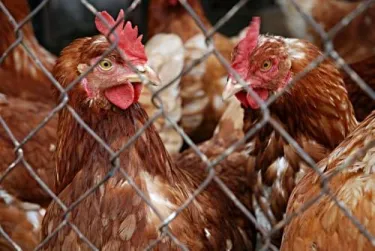Factory Farming
Treatment of Animals, People & the Environment

The Resolution ‘On Advocacy Against Factory Farming’ passed at the 2016 General Assembly. The directives and rationale are found here.
The concerns fall into three general categories:
- Humane treatment of animals
- Environmental concerns about animal agriculture, including the concerns of ‘fence line’ communities located near factory farms)
- Support for farmworkers and processing plant workers, people of color farmers, and family farmers and ranchers
Informed and effective action depends on a good understanding of the issues. The rationale in the resolution helps with this, along with the resources compiled below.
The inspiration for Monmouth Presbytery to recommend this overture was grounded in concerns about animal production in factory farms. It is important to remember that factory farming is a relatively new phenomenon. Over the past few decades, large-scale, intensive production of livestock and poultry has come to dominate the food system. Factory farming now accounts for almost all animal agriculture in the United States and is valued at over $100 billion per year.
Factory farming continues to grow across the globe, and concentrated animal feeding operations (CAFOs) now account for 72 percent of poultry production, 43 percent of egg production and 55 percent of pork production worldwide. [Information from ‘Can Factory Farm Divestment Work?‘]
The Presbyterian Church (U.S.A.) has a history of affirming that protection of the environment is an essential part of the Christian faith. The 1990 PC(USA) report, ‘Restoring Creation for Ecology and Justice,’ which asserts that humanity and nature are so inextricably bound that the suffering of one affects the other. The report states that,
As we seek to be faithful, we do not seek to vilify those who work in good faith in modern industries and we seek the well-being of all through collaboration in creative, positive ways.
